News
The latest astronomy and astrophysics news and headlines at UC San Diego.
Please send inquiries and/or future news items to the Communications Commtitee Chair.
Follow A&A on Instagram: ucsdastro
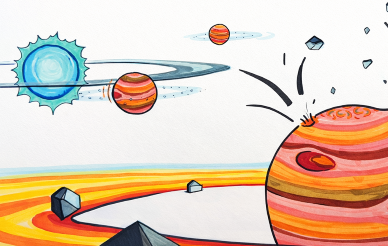
How Big Can a Planet Be? With Very Large Gas Giants, It Can Be Hard to Tell
Dr. Jean-Baptiste Ruffio and other A&A members have published a new Nature Astronomy study addressing the question “How big can a planet be?” using JWST observations of the HR 8799 system. The analysis shows that super Jovian planets, with masses of roughly five to ten times that of Jupiter, most likely formed through core accretion rather than direct collapse, challenging long standing assumptions about the upper limits of planet formation. By identifying key atmospheric species such as sulfur, the team provides strong evidence for a disk formation pathway and demonstrates the power of JWST spectroscopy to link exoplanet atmospheres to their formation histories.
A&A Graduate student and Postdoc Selected as Bouchet Scholars
Congratulations to A&A graduate student Ilyse Clark and postdoc Devontae Baxter who were recently selected to become members of the Bouchet Honor Society! The Bouchet Society was founded by Yale and Howard Universities and named for Edward Alexander Bouchet, the first African American doctoral recipient in the United States. Bouchet Scholars are selected based on exemplifying "strength of character, leadership, advocacy, service, and scholarly achievement." Congratulations, Ilyse and Devontae!
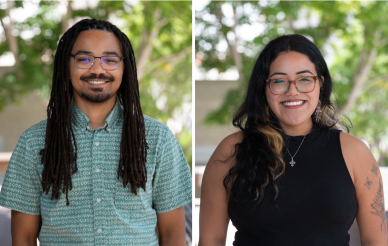
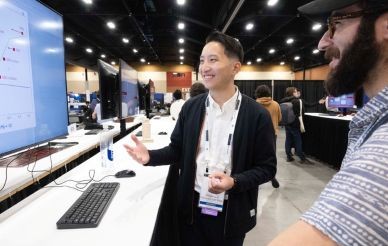
A&A Students Earn Honorable Mentions for AAS 247 Chambliss Awards
Congratulations to UC San Diego students recognized at the 247th American Astronomical Society (AAS) meeting this January. Leo Lee received a Graduate Honorable Mention, and Justin Mascari earned an Undergraduate Honorable Mention in the Chambliss Student Poster Competition. The Chambliss Poster Competition recognizes exceptional student research that stand out for their scientific and presentation quality.
UC San Diego A&A Named Host Institution for Inaugural Astronova Fellowship
A&A Instrumentation Laboratories have been selected as a host site for the inaugural Astronomical Innovation (Astronova) Fellowship, a new postdoctoral program supported by the Heising-Simons Foundation focused on advancing astronomical instrumentation. The Astronova Postdoctoral Fellowship is designed to support early-career instrumentalists working at the intersection of science and instrument development, with an emphasis on enabling next-generation observations in astrophysics. As part of this first cohort of host institutions, UC San Diego will provide fellows with access to active instrument-building programs, hands-on laboratory infrastructure, and close mentorship within a research environment that couples instrumentation with frontier science goals.
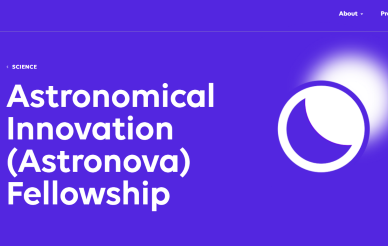

Prof. Kyle Kremer wins American Astronomical Society's Helen B Warner Prize
Congratulations to Prof. Kyle Kremer, who was recently awarded the Helen B. Warner Prize from the American Astronomical Society! The Warner prize is awarded for observational or theoretical research that has made a significant impact in the field by a researcher within 8 years of their PhD. The AAS citation states that Prof. Kremer is awarded the prize "for innovative theoretical work illuminating the dynamics of compact objects in dense stellar systems. A number of Kremer’s results have had a major impact across several subfields of astrophysics, including globular clusters, gravitational wave sources, and neutron stars." The Warner prize is one of the most distinguished honors awarded by the AAS. The UC San Diego A&A Department is proud to congratulate Prof. Kremer on this great honor!
Prof. Adam Burgasser named Fellow of the American Astronomical Society
Congratulations to Prof. Adam Burgasser, who was recently named a Fellow of the American Astronomical Society! The AAS Fellows program was created to recognize AAS members for their contributions toward the Society's mission of enhancing and sharing humanity's scientific understanding of the universe. Prof. Burgasser is an expert on the coolest stars, brown dwarfs, and exoplanets. Prof. Burgasser's award citation states: "For foundational contributions to our understanding of the nature of the lowest-mass stars, brown dwarfs, and exoplanet host stars using space and ground-based facilities; for longstanding commitment to diversity and inclusion; and for extensive leadership roles in the astronomy community."


A&A Postdoctoral Fellow Dr. Steffani Grondin named 2026 Shapley Lecturer by the American Astronomical Society
Congratulations to Dr. Steffani Grondin, who was recently named by the American Astronomical Society as a Shapley Lecturer for 2026! Dr. Grondin is an NSERC postdoctoral fellow in the A&A Department. She is an expert on binary star systems and their evolution, particularly the important "common envelope" phase. The Harlow Shapley Visiting Lectureship is a prestigious program dating back to 1958 that brings distinguished astronomers and astronomy educators to schools and communities across North America to share the wonder of the Universe and inspire broader engagement with science. Dr. Grondin was chosen based on her outstanding track record in astronomy outreach, community engagement, and her exciting research program.
A&A Majors Win Awards from the School of Physical Sciences
The A&A Department is delighted to congratulate three of our undergraduate majors on winning awards for their academics and research from the School of Physical Sciences. Aidan Mai and Jack Green were awarded Dean's Undergraduate Excellence Awards which recognize students who have demonstrated academic excellence and promise as researchers. Marylin Loritsch was honored with the Silagi Undergraduate Award which recognizes high scholastic honors and a commitment to research. Congratulations to our three honororees!


A&A Professor Dusan Keres Recognized for 7th Consecutive Year as "Most Influential Researcher"
For the 7th year in a row, Prof. Dusan Keres from the Department of Astronomy & Astrophysics has been recognized on the "Highly Cited Researchers" list by Clarivate. The "Highly Cited Researcher" designation goes to the top 1% of faculty and scientists their fields based on citation records over the last decade. Prof. Keres is an expert on cosmological galaxy simulations and is one of the leaders of the "Feedback in Realistic Environments" (FIRE) simulations, which have led to major new insights into galaxy evolution. Congratulations Prof. Keres!
A&A Professor Floor Broekgaarden wins 2025 "Convene and Influence" Award
Assistant Professor Floor Broekgaarden has been selected as a 2025 "Convene and Influence" Awardee! This award, established by Chancellor Khosla, aims to "empower faculty to build partnerships that cross disciplines, institutions, and sectors." Prof. Broekgaarden's award, along with co-PI Prof. Aobo Li from the Halıcıoğlu Data Science Institute, is for SMASH - "a new collaborative effort on the UCSD campus to tackle the big data era in Astronomy & Physics: making discoveries about our cosmos in an era with rapidly increasing data size, data complexity, and dimensionality." Congratulations to Prof. Broekgaarden on this exciting award!


A&A Graduate Student Julian Gerber wins Top Poster Prize
Congratulations to A&A graduate student Julian Gerber, who was recently awarded the prize for the top student poster at the High Energy Astrophysics Division meeting in St. Louis, MI! Julian's poster on "The Strip Pairing Algorithm for COSI's Calibration Pipeline" can be seen outside SERF 426. Julian is a second year graduate student in the department, working on the Compton Spectrometer and Imager (COSI) with Prof. Steve Boggs. Congratulations Julian!
Meet the 2025-26 Burbidge Visiting Professor - Dara Norman
Welcome to our newest Burbidge Visiting Professor, Dara Norman! Dr. Norman joins us from Tucson, AZ where she is the Deputy Director of the NOIRLab Community Science and Data Center. Dr. Norman is an expert on active galactic nuclei and their impact on galaxy evolution. Dr. Norman has been a major force in changing the culture of Astronomy. She served on the American Astronomical Society’s (AAS) Committee on the Status of Minorities in Astronomy; chaired the ASTRO section of the National Society of Black Physicists; co-chaired the AIP TEAM-UP Implementation Workshops, and co-organized the 2015 Inclusive Astronomy Conference. She is also the current President of the American Astronomical Society! We are honored to have Dr. Norman visiting us for the Fall 2025 quarter.


A&A Undergraduate Marylin Loritsch has been awarded a USRA Distinguished Undergraduate Award Honorable Mention
Congratulations to A&A major and STARTastro scholar Marylin Loritsch for being named an honorable mention for the USRA Distinguished Undergraduate Award! USRA is an independent, nonprofit research corporation that advances space science and technology through industry, government, and university partnerships; UCSD is one of 121 participating universities. The annual USRA Award recognizes undergraduate students with a career interest in space science or engineering with a distinguished academic and research portfolio. Marylin's Honorable Mention recognizes her as among the top 10% of these year's applicant pool.
Congratulations to the A&A Department Summer Researchers!
The A&A Department hosted a record number of undergraduate researchers over the summer - 75 students from all over the world worked with UCSD faculty and researchers studying topics ranging from exoplanets, to space dust, to gravitational waves and beyond. The amazing effort by the summer students culminated in 7 full astronomy focused sessions with 28 individual talks at the UCSD Summer Research Conference and 7 posters at the UCSD SPURS poster presentation. Congratulations to all of the presenters on their amazing work! Many of the summer students were supported by generous scholarship programs like SPURS and STARS from UCSD, including a new cohort of 15 transfer students joining the STARTastro program this year. The A&A Department is very proud of the research done by all 75 students this summer!


Detection of Phosphine in a Brown Dwarf Atmosphere Raises More Questions
Prof. Adam Burgasser and an international team have reported the first detection of phosphine (PH3) in the atmosphere of a brown dwarf, published in Science. Using JWST spectra of the old, metal-poor system Wolf 1130C, the team identified phosphine at abundances consistent with predictions for giant planet atmospheres but never before confirmed in a brown dwarf. Because phosphine is thermodynamically unstable at high temperatures, its presence points to disequilibrium processes such as vertical mixing or non-equilibrium chemistry. The discovery expands the molecular inventory of substellar atmospheres and raises new questions about chemical pathways at the boundary between planets and stars. Such as, why has phosphine been elusive in other brown dwarfs and giant exoplanets despite prior predictions? … Find out more in the Science paper: https://www.science.org/doi/10.1126/science.adu0401
UC San Diego now a host institution for the prestigious 51 Pegasi b fellowship!
The Heising-Simons Foundation is accepting applications to the 51 Pegasi b Postdoctoral Fellowship, which supports Fellows conducting research related to planetary science, planetary astronomy, and astrobiology. Starting this application cycle, UC San Diego is a new host institution for the Fellowship program. Applicants can apply to the Heising-Simons Foundation to work with relevant faculty at UC San Diego in the Department of Astronomy and Astrophysics, the Scripps Institution of Oceanography, and/or the Department of Chemistry and Biochemistry. Applications are being accepted through October 3rd, 2025 at 2 pm PT. Find out more about bringing the 51 Peg b Fellowship to UC San Diego here, and feel free direct questions to Asst. Prof. Samantha Trumbo (satrumbo@ucsd.edu).


Scientists Find a Quadruple Star System in Our Cosmic Backyard
Astronomers have identified a rare quadruple system—two M-type red dwarfs paired with two T-type brown dwarfs—just 82 light-years away, offering new insights into the physics of star formation. Professor Adam Burgasser, a member of the discovery team, highlighted the system’s significance: “It can serve as an age benchmark to calibrate low-temperature atmosphere models, and as a mass benchmark to test evolutionary models if we can resolve the brown dwarf binary and track its orbit.” The discovery of this system is important for its potential to break the long-standing “age-mass degeneracy” problem in brown dwarf research, making this discovery a milestone for stellar and substellar astrophysics.
Prof Eve Lee Contributes to Breakthrough in Planet Formation Modeling
UC San Diego astrophysicist Eve J. Lee is a co-author on a new study led by Pinghui Huang (University of Victoria) that explores how planets form in young star systems. The paper "Leaky Dust Traps in Planet Embedded Protoplanetary Disks" (ApJ 988, 94; 2025) uses advanced computer simulations to explore how dust behaves in planet-forming disks. These simulations reveal that regions where dust is expected to accumulate and grow into planets may actually allow material to escape. The team found that even small dust grains can escape these traps. This finding challenges long-standing ideas about how planets form, and may explain why recent JWST observations still detect water in inner parts of disks despite the presence of dust rings farther out.

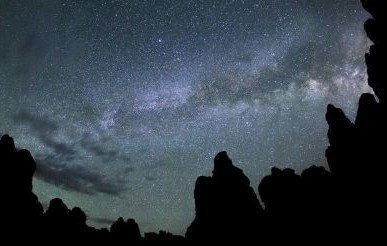
Scientists code Milky Way twin galaxies to better understand dark matter
UC San Diego’s Ethan Nadler, working with collaborators at USC and Carnegie Observatories, has developed a new set of galaxy simulations called COZMIC, which is designed to model galaxies like our Milky Way and explore how dark matter behaves on small scales. These simulations test both standard and alternative models where dark matter can interact with itself, helping scientists understand how these interactions might affect galaxy formation. See the story for more!
A&A Postdoctoral Fellow Devontae Baxter's Research Featured in Nature Astronomy
UCSD A&A Postdoctoral Fellow Devontae Baxter's research is featured in the latest edition of Nature Astronomy. Dr. Baxter is a recipient of the National Science Foundation's prestigious Astronomy & Astrophysics Postdoctoral Fellowship and the UC Chancellor's Postdoctoral Fellowship and is an expert on extragalactic astrophysics. His research is featured as part of the "Black Space Week 2025" honoring the Juneteenth holiday. In the article Dr. Baxter describes several exiting projects in progress. Dr. Baxter has also been very active in outreach and education while at UCSD A&A, leading the "Computational Astrophysics Research Preparation" workshop, which provides training in python and computational methods for community college students.
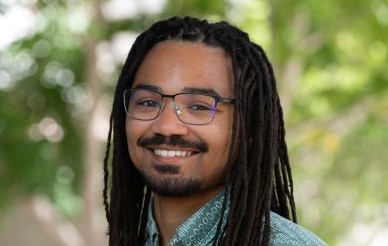
Three A&A Students Awarded 2025 Graduate Fellowships
Astronomy & Astrophysics graduate students Sarah Jiang and Elizabeth Hillenkamp have been awarded the prestigious 2025 National Science Foundation Graduate Research Fellowship Program (NSF GRFP). Sarah Jiang, a second-year graduate student working with Prof Theissen, is researching the occurrence rate of terrestrial planets around low-mass and Sun-like stars, and is developing new methods to characterize potentially habitable, Earth-like exoplanets. Incoming graduate student Elizabeth Hillenkamp also received the NSF GRFP and is currently conducting research at the National Radio Astronomy Observatory, investigating potential mass limits of intermediate-mass black holes in local dwarf galaxies. Vincent Savignac has been awarded the 2025 Natural Sciences and Engineering Research Council of Canada Postgraduate Scholarship at the doctoral level. Vincent Savignac, in his third year working with Prof. Lee, is building theoretical models to understand the formation and evolution of rocky planets in our solar system and beyond. Congratulations Sarah, Vincent, and Elizabeth!
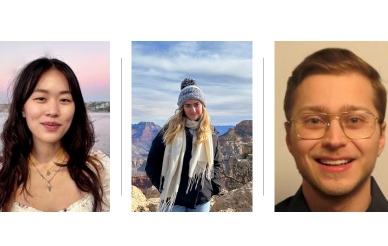
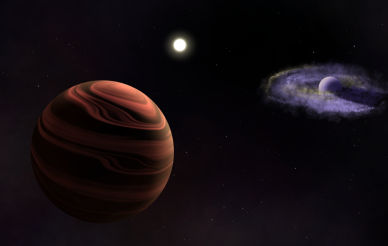
UC San Diego Astronomers Help Directly Observe Sand Clouds in a Distant Gas-Giant Planet
UCSD alumna Dr. Kielan Hoch, together with A&A faculty Chris Theissen, Jean-Baptiste Ruffio, and Quinn Konopacky, used the James Webb Space Telescope to directly detect sand and iron clouds high in the atmosphere of the gas giant exoplanet YSES-1c. This young planet, orbiting a 16 million year old star 307 light-years away, is part of a system that also features a surprising dust disk around its sibling planet, YSES-1b. Published in Nature, these findings are refining theories of planet formation and underscore JWST’s expanding role in probing exoplanet atmospheres and early solar system evolution.
Prof. Ethan Nadler Helps Launch AstroReachSD to Inspire the Next Generation of Scientists
Prof. Ethan Nadler is leading the charge on AstroReachSD, a new outreach program designed to connect underrepresented San Diego high school students with real astrophysics research and mentorship. Through interactive lessons, lab visits, and direct engagement with UC San Diego researchers, the program help students to explore big cosmic questions, like the nature of dark matter and the origins of the universe, while building pathways into STEM careers. Nadler’s goal is to make astrophysics more accessible and inclusive by fostering curiosity and academic confidence in students who might not otherwise see science as part of their future
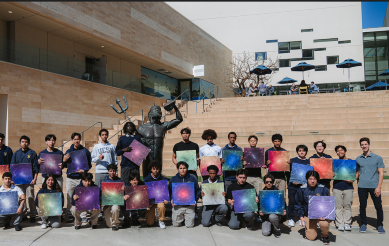
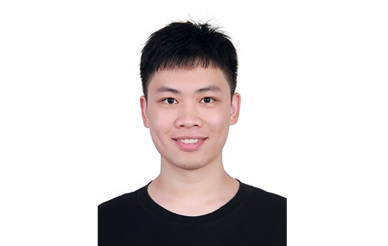
Mingyun Cao Awarded 2025 Lu Jeu Sham Outstanding Physics Paper Award
Physics Ph.D. student Mingyun Cao has been selected as the recipient of the 2025 Lu Jeu Sham Outstanding Physics Paper Award for his lead authorship on the Physical Review Letters paper titled "Physics of edge-core coupling by inward turbulence propagation.” Working with Distinguished Prof. Pat Diamond, Cao’s research presents a significant advance in understanding how turbulence propagates from the edge to the core in tokamak plasmas, which is an essential problem in fusion energy science. His work integrates concepts from turbulence theory, plasma physics, and tokamak phenomenology. As the principal architect of the study, Cao played a central role in shaping the research direction, analysis, and synthesis of results, making this a noteworthy contribution to the field.
Eltha Teng Receives 2025 UC San Diego Chancellor’s Dissertation Medal
Eltha Teng has been awarded the prestigious 2025 Chancellor’s Dissertation Medal for the School of Physical Sciences at UC San Diego. This honor is given annually to just seven doctoral students across the entire campus, recognizing exceptional research achievement. Teng’s dissertation was selected based on its originality, impact, and scholarly excellence, including the clarity of writing and rigor of methodology. Her work stood out for its significant contribution to the field and department, earning her one of the university’s highest distinctions for doctoral research.
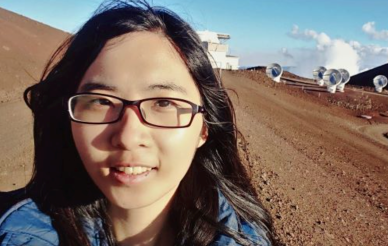
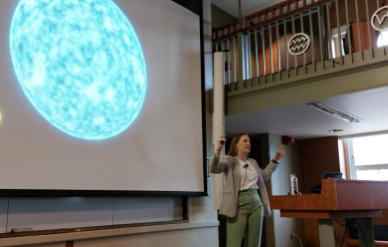
Prof Broekgaarden selected as finalist for the GWIC-Braccini Thesis Prize
Floor Broekgaarden was selected as a finalist for the GWIC-Braccini Thesis Prize. This thesis prize, announced by the Gravitational Wave International Committee (GWIC) and the Friends of Stefano Braccini, recognizes an outstanding PhD thesis in the field of gravitational waves. Congratulations, Floor! You can read more about the prize on the GWIC website.
A&A Professor Chris Theissen wins UC San Diego's Hellman Fellowship
Congratulations to Assistant Professor Chris Theissen for being named a 2025-26 Hellman Fellow! This is a prestigious faculty award that is given to pre-tenure faculty "who show capacity for great distinction in their research and creative activities”. Prof. Theissen is an expert on low-mass stars and brown dwarfs as well as machine learning and AI approaches applied to object classificaiton in the next generation astronomical surveys, exoplanet detection, and stellar characterization.
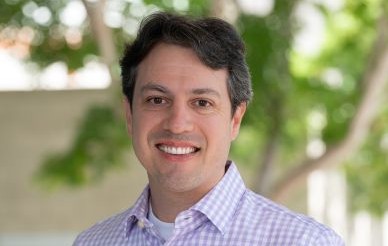

Do “Completely Dark” Dark Matter Halos Exist?
New research by Assistant Professor Ethan Nadler offers insight into why some dark matter halos in the early universe never formed stars and may still be completely invisible today. In a study published in The Astrophysical Journal Letters, Nadler shows that while some small halos, cosmic structures that can host galaxies, were just massive enough to begin forming stars using molecular hydrogen cooling, the tiniest ones likely never reached that threshold. These findings may help explain the origins of the faintest galaxies we can see today and suggest there may be many “dark” halos still lurking unseen in the cosmos. Read the full study: Nadler, E. O. (2024), “Dark Matter Halo Growth Histories Sharpen the Galaxy Formation Threshold,” The Astrophysical Journal Letters, https://doi.org/10.3847/2041-8213/adbc6e
Graduate Student Aravind Valluvan Awarded Best Talk at the Russbach School
Graduate student Aravind Valluvan attended the 20th Russbach School on Nuclear Astrophysics in Salzburg, Austria, an international program that brings together researchers in astrophysics, astronomy, cosmochemistry, and nuclear physics. Aravind gave a contributed talk titled "Nucleosynthesis Science with COSI” and was awarded Best Presentation at the conference. Congratulations, Aravind!
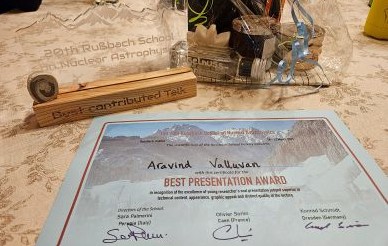

Seeing Yourself in the Stars
A recent UC San Diego Today feature, Seeing Yourself in the Stars, highlights interviews with three undergraduate students - Lauren Cadle, Julian Jackson, Peera Serumaga - who attended the Merging Nuclei: Creating Stronger Force conference. Hosted jointly by the National Society of Black Physicists and the National Society of Hispanic Physicists, the event provided a platform for students to connect with peers, mentors, and leaders in the field. The students shared their experiences, insights, and the impact of attending this conference.
8 Trailblazing Women Educators Who Paved the Way at UC San Diego
A recent feature by UC San Diego Today highlights eight pioneering women professors who shaped the university’s history, including three influential physicists: Margaret Burbidge, Sally Ride, and Maria Goeppert Mayer. Margaret Burbidge, an astrophysicist, expanded our understanding of stellar nucleosynthesis and was a fierce advocate for gender equality in science. Sally Ride, the first American woman in space, continued her legacy as a physics professor at UC San Diego, inspiring generations of students in physics and space exploration with the Sally Ride Science Center. Maria Goeppert Mayer, a theoretical physicist and Nobel laureate, developed the nuclear shell model, fundamentally changing how we understand atomic structure.


Exploring the Cosmos at the San Diego Science & Engineering Expo!
On March 1st the UCSD Astronomy & Astrophysics Department hosted a booth at the San Diego Festival of Science and Engineering EXPO, an event that attracts over 20,000 attendees and features more than 150 exhibitors. Professor Adam Burgasser led children and adults on a scaled tour of the solar system, placing planets at relative distances across Petco Park and locating them with telescopes. Graduate and undergraduate students Jayke Nguyen, Emily Broadbent, Quinn Smith, and Julia Zhang guided visitors through a general relativity demonstration and an interactive Mini JWST model, teaching concepts such as planetary orbits, gravitational waves, and exoplanet hunting. Dr. Jarred Roberts took the lead in organizing the event, designing and building the gravitational wave and JWST demos, and serving as the overall outreach volunteer manager and logistics coordinator. A huge thank you to everyone who participated!
Unique Views of Lick Observatory with UC San Diego’s Cool Stars Lab
Lick Observatory’s capabilities and beauty are showcased in a UC San Diego Today feature highlighting the research of Professor Adam Burgasser and members of the Cool Star Lab. Prof. Burgasser, along with graduate student Emma Softich and undergraduate students Marylin Loritsch and Madison Fierro, share their experiences at Lick Observatory through stunning photos captured by Eric Jepssen (pictured here in front of the Shane 3-m).
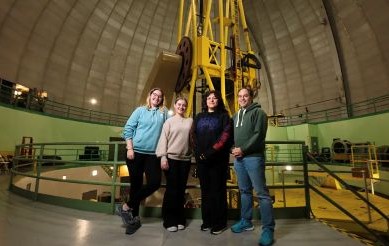
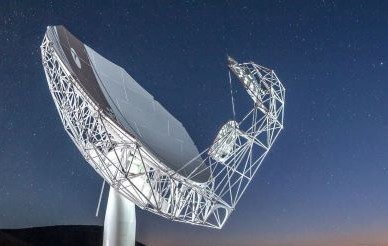
Astronomers Suspect Colliding Supermassive Black Holes Left the Universe Awash in Gravitational Waves
Assistant Professor Floor Broekgaarden is highlighted in a Smithsonian Magazine article featuring a discovery by MeerKAT Pulsar Timing Array (MPTA), which detected a faint background hum of gravitational waves believed to be caused by the mergers of supermassive black holes. This detection, achieved by monitoring pulsars over decades, offers a way to study the universe’s most massive objects and their interactions. Professor Broekgaarden, an expert in gravitational-wave astrophysics, provided insight into the significance of these findings for understanding cosmic evolution.
UC San Diego’s Department of Astronomy and Astrophysics Embraces a New Year of Discovery
The Department of Astronomy and Astrophysics was highlighted in UC San Diego Today. The article discuses the rapidly expanding department in research and education. A&A this year is introducing a modern undergraduate program and has recently welcomed six new faculty members—a significant addition in the astrophysics community. These new faculty members specialize in areas such as gravitational waves, astrobiology, and time-domain astrophysics, complementing the department's existing research strengths.
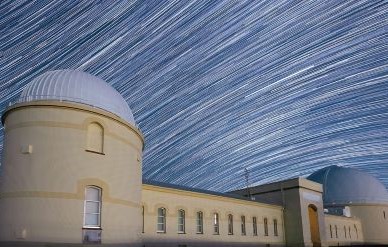
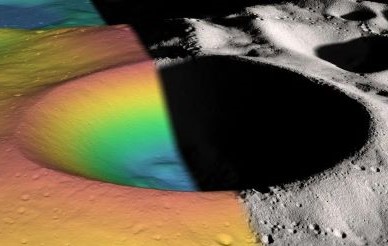
Follow the Water: Searching for a Lunar Oasis
UC San Diego Distinguished Professor of Chemistry and Biochemistry Mark Thiemens, in collaboration with his son, a professor at Vrije Universiteit Brussel, has helped shed light on the origins of water on the Moon. Through isotopic analysis, the Thiemens duo determined that lunar water likely originates from the Moon itself or from cometary impacts, ruling out the hypothesis that it was delivered by solar wind. Understanding the source of lunar water is crucial for future lunar exploration missions, such as Artemis, which aim to study and utlilize water. Prof Thiemens was the Dean of School of Physical Sciences for over a decade, and contributing member of the previous Center for Astrophysics and Space Sciences (CASS).
UC San Diego Shines at AAS Meeting
UC San Diego had a strong presence at this year’s 245th American Astronomical Society (AAS) meeting, with at least 29 presentations, talks, and panels showcasing the latest research. Undergraduates Marylin Loritsch and Tianxing "Sky" Zhou earned Chambliss poster awards for their outstanding research, while Camila Martinez (UCSC), who collaborated with Quinn Konopacky at UCSD, received an honorable mention. Undergraduate students Annika Feng and Marylin Loritsch were also recognized as FAMOUS grant recipients. Graduate students Aneesh Baburaj, Clarissa Do O, and Lingfeng Wei delivered dissertation talks on their PhD programs. Professors Floor Broekgaarden participated in a panel on Artificial Intelligence Policy, while Adam Burgasser led an important panel discussion on Ethics in Astronomy.
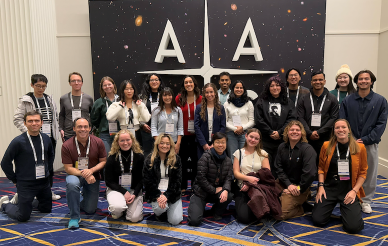
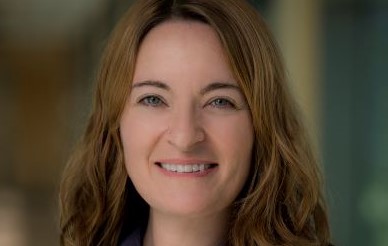
Prof. Alison Coil Named Fellow of the American Astronomical Society
A&A Department Chair Alison Coil has been elected as an American Astronomical Society (AAS) Fellow. Prof. Coil was elected as a 2025 AAS Fellow, which is "an honor bestowed on less than 0.5% of AAS’s membership each year". Prof. Coil was elected for "original and creative contributions to our understanding of the evolution of galaxies and the formation and evolution of supermassive black holes; for uncovering the large-scale structure of galaxies in the distant universe; and for inspirational mentorship of the next generation of astrophysicists". The A&A Department congratulates Prof. Coil on this great honor!
Undergraduates win FAMOUS Travel Grants to the American Astronomical Society Meeting
STARTastro scholars Annika Feng and Marylin Loritsch have been awarded the AAS FAMOUS Travel Grant for the upcoming AAS 245 meeting in Washington, DC. FAMOUS (Funds for Astronomical Meetings: Outreach to Underrepresented Scientists) grants award $1,000 for a single AAS meeting to present research, with priority given to members of historically underrepresented groups. Annika will be presenting her work on "Orbital Monitoring and Atmospheric Spectroscopy of the Directly Imaged Companion 1RXS J2351+3127 b" while Marylin will be presenting her work on "Characterizing the Optical Spectra of the Nearest Stellar Neighbors: The 20 Parsec Sample". Congratulations Annika & Marylin!
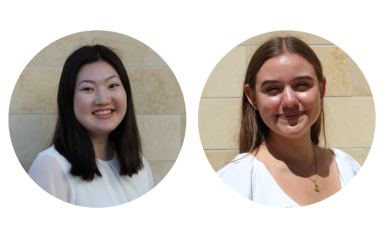
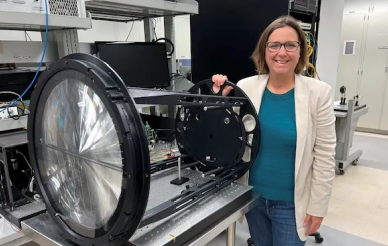
Prof. Shelley Wright profile in San Diego Union Tribune
Prof. Shelley Wright of the A&A Department was recently featured in the San Diego Union Tribune's "Someone San Diego Should Know" column! The profile describes Prof. Wright's work on the PANOSETI telescope system, the search for "technosignatures", and her career path in astrophysics.
Join the NSF HDR Hackathon on 11 & 12 January at UCSD!
During the hackathon students will be using ML to find anomalies in their choice of three datasets: gravitational wave detection, hybrid species discovery, or climate event identification. The goal of the hackathon is to work with teams and expert consultants to complete a submission for one of these challenges. It is a great opportunity to refine your data science skills, network with scientists, and have fun! There will be prizes and certificates awarded for best submissions. All experience levels are welcome! All information about the event and steps to register can be found at the event webpage. This hackathon is organized by UCSD’s departments of Astronomy & Astrophysics, Physics, HDSI, and SDSC.
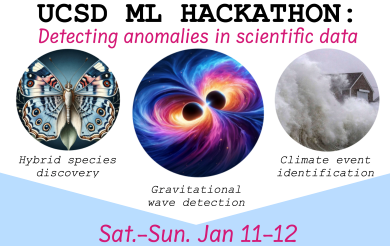
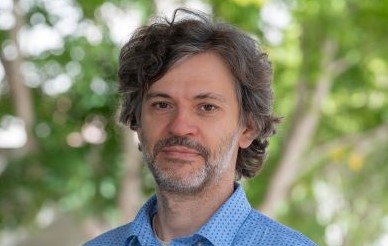
Prof. Dusan Keres Recognized as a Highly Cited Researcher
A&A professor Dusan Keres was recently recognized by Clarivate as one of the top 1% of highly cited researchers in his field. Prof. Keres is an expert on cosmological galaxy simulations and one of the leads of the "Feedback in Realistic Environments" (FIRE) simulations. Congratulations to Prof. Keres on this major accomplishment!
Prof Shelley Wright Featured in UC San Diego Magazine
A&A professor Shelley Wright was recently featured in UC San Diego Today Magazine with an interview with her work on astronomical instrumentation and SETI. In particular, the Panoramic SETI telescope system (PANOSETI), which can take nanosecond cadence imaging of the night sky and is now deployed at Lick Observatory.

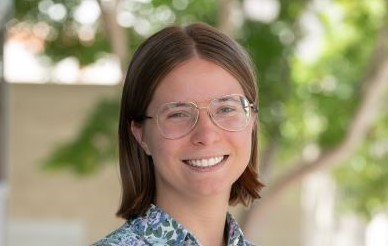
Graduate Student Lindsey Hands in School of Physical Sciences Student Spotlight
Department of A&A graduate student Lindsey Hands was recently featured in the School of Physical Sciences "Graduate Student Spolight". Lindsey is a 3rd year grad student in the department and the co-President of the Astronomy Graduate Council. She is also the creative mind behind the weekly invitation to the BASH social hour, a highlight of each week. Congratulations Lindsey!
First SMASH Meeting
On Tuesday October 22, 2024, the first “SMASH” (UC San Diego Meetings between Astro/physics, SDSC, & HDSI) meeting took place. This is a new initiative led by A&A’s Floor Broekgaarden between Astrophysics, Physics, and the data science, AI, and supercomputer centers on the UCSD campus. The first meeting was attended by over 50 different scientists and focused on introductions and getting to know each other. SMASH meetings will take place bi-weekly, and rotate between the different departments.
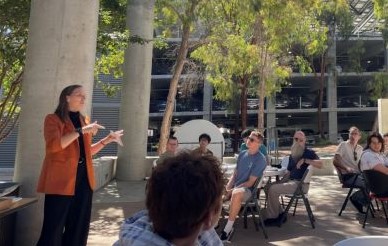
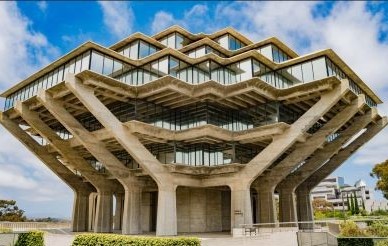
A&A Department's New "Astronomy of Climate Change" Course Featured in The Guardian
The A&A Department's new ASTR 65 "The Astronomy of Climate Change" was featured in a recent article in the Guardian. This course will be offered for the first time in 2025/26. ASTR 65 meets the new Jane Teranes Climate Change Education Requirement at UC San Diego, which "is designed to empower our students with the knowledge and skills needed to confront the urgent global challenge of climate change".
Prof. Samantha Trumbo Attends Europa Clipper Launch
Professor Samantha Trumbo, one of the A&A Department's new faculty members, was at the Kennedy Space Center recently to watch the launch of the Europa Clipper. Prof. Trumbo studies the icy ocean worlds of the Solar System, including Europa, and is a member of the Europa Clipper science team. In particular, Prof. Trumbo is involved with the Mapping Imaging Spectrometer for Europa (MISE), which will reveal new aspects of Europa's surface chemistry after the spacecraft arrives in 2030.
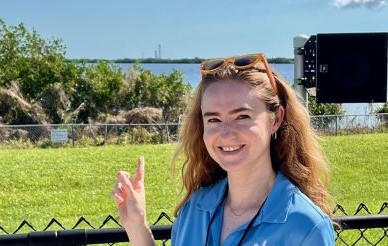
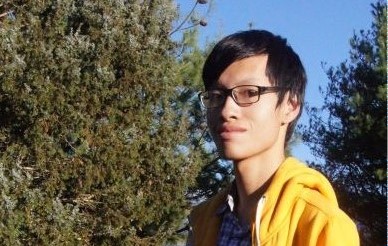
Graduate student Julius (Yen-Hsing) Lin awarded the Katzin Prize
Congratulations to Julius (Yen-Hsing) for winning the Katzin Prize! The Katzin Prize is prestigious UC San Diego fellowship awarded to doctoral students in their first year at UC San Diego who demonstrate outstanding talent and promise for their future academic career. Yen-Hsing completed his undergraduate and master's degrees at National Tsing Hua University (NTHU), majoring in physics and astronomy. At UC San Diego A&A, Yen-Hsing will study galaxy evolution through advanced numerical simulations.
UC San Diego at Comic Con 2024
UC San Diego A&A members contributed to two panels at this year's Comic Con in San Diego. Prof. Adam Burgasser participated in a panel about the TV show "For All Mankind". Graduate student Sanchit Sabhlok contributed to a panel about the TV series "Foundation" based on the classic sci-fi novel series by Isaac Asimov. These panels were organized by the Fleet Science Center and focused on the intersection of science and pop culture.

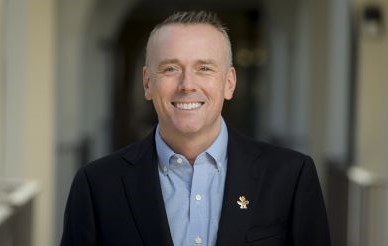
Measuring up: The Compton Spectrometer and Imager
Prof. Steve Boggs from the UCSD A&A Department will give an invited plenary lecture at the upcoming SPIE Optics + Photonics Conference, to be held this August in San Diego. Prof. Boggs will discuss the latest news about NASA's Compton Spectrometer and Imager (COSI) mission, of which he is the Deputy PI. COSI is scheduled for launch in 2027 and will survey the entire sky at gamma ray wavelengths (0.2-5 MeV).
Graduate student Jayke Nguyen wins Friends of the International Center Fellowship
Congratulations to Jayke Nguyen for winning a 2024-2025 UCSD Friends of the International Center Fellowship! The fellowship is awarded based on a student's distinguished academic record; research that advances the understanding of topics with an international component and/or otherwise be of global relevance; and a demonstrated history of service and/or volunteerism, ideally promoting cross-cultural understanding and/or an internationally inclusive community. Jayke's research as part of the international GPI 2.0 project and his strong track record of service on campus, in the local San Diego community, and in Hawaii, as well as his outstanding academic record, made him a wonderful candidate for this fellowship.
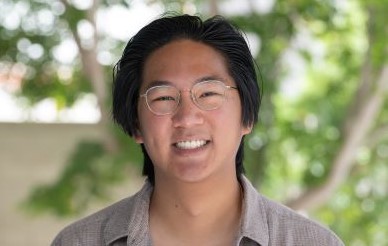
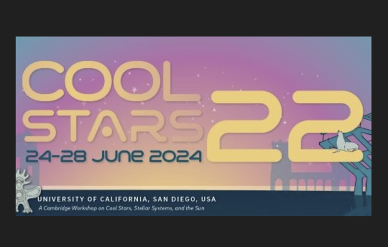
UC San Diego Hosts Stellar Gathering: Cool Stars 22 Conference
Over 400 astronomers arrived in San Diego in June 2024 to participate in the 22nd Cool Stars Conference organized by UC San Diego faculty Chris Theissen, Quinn Konopacky, and Adam Burgasser. The conference was a huge success, spanning five days of presentations, conference excursions, and an amazing banquet at the San Diego Zoo. Congratulations to all of the local organizing team!
UC San Diego Instrument Builders Present at SPIE Yokohama 2024
Over a dozen researchers from UC San Diego Astronomy & Astrophysics and Physics Department presented papers at the SPIE Astronomical Instrumentation conference in June 2024. Graduate student Sanchit Sabhlok was able to coordinate a San Diego team picture. Left to right: Shelley Wright, Bryce Bixler, Jerome Maire, Michael Randall, Aaron Brown, Saavi Perera, Jayke Nguyen, Sanchit Sanbhlok, Clarissa Do O, Ben Sappey, Maren Cosens, Leo Lee, and James Wiley.

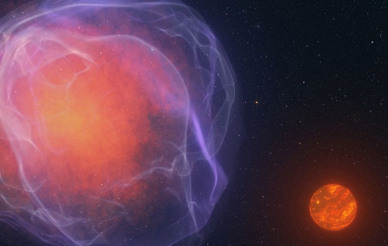
Lone Star State: Tracking a Low-Mass Star as it Speeds Across the Milky Way
A team of astronomers from across the country has discovered a rare hypervelocity L subdwarf star, CWISE J124909+362116.0 ("J1249+36"), racing through the Milky Way. This hypervelocity star may eventually leave the galaxy. Led by UC San Diego Professor Adam Burgasser, the research was presented at the 244th national meeting of the American Astronomical Society in Madison, Wisconsin. The J1249+36 star was first identified by volunteers from the Backyard Worlds: Planet 9 project, who analyzed data from NASA's Wide-field Infrared Survey Explorer (WISE) mission.

Undergraduate Sonata Simonatis-Boyd wins the John Holmes Malmberg Prize
Sonata Simonatis-Boyd graduated in June 2024 with a B.S. Physics degree and won the John Holmes Malmberg Prize.. The John Holmes Malmberg Prize is presented annually at commencement to a graduating physics student who is recognized for excellence in research and promise in research in experimental physics applications. A luncheon to celebrate undergraduate and graduate student prize winners took place on June 10, 2024. Sonata conducted research in the Optical Infrared Laboratory with Professor Wright and Graduate Student Sanchit Sabhlok. Sonata will begin graduate school in Data Science at UC San Diego in Fall 2025.
Simons Observatory Begins Hunt for Echoes of the Big Bang in Universe’s Oldest Light
The Simons Observatory has achieved first light and begun operations with four new telescopes in Chile's Atacama Desert to conduct crucial measurements of the cosmic microwave background. UC San Diego has played a vital role in this collaboration, with essential instrumentation and leadership from Professor Brian Keating, Associate Professor Kam Arnold, and their group members. Read more about this achievement here.


Cosmic Tours program featured on CBS8 news
The Cosmic Tours portable planetarium program, run by the OIRLab at UC San Diego, was featured this week on San Diego’s CBS8 news. The story featured a recent Cosmic Tours event at Ocean Beach Elementary school led by UCSD graduate student James Wiley, Project Scientist Jarred Roberts, and Data Analysts Bryson Cale. Over the last several years, Cosmic Tours has given over 150 curated planetarium shows around San Diego County. For more information go to the Cosmic Tours webpage.
STARTastro: A new summer research opportunity for community college transfer students!
There is an exciting new opportunity for incoming transfer students interested in studying astronomy and astrophysics at UC San Diego or San Diego State University this summer! STARTastro is a new summer opportunity that includes an 8-week, fully-paid academic and research training program. Applications are open for this summer, due May 24.


UCSD PhD alum Dr. Roman Gerasimov wins IAU Dissertation Prize
Congratulations to Dr. Roman Gerasimov on winning the International Astronomical Union’s Dissertation Award. Roman received his PhD in Physics in 2023 on the topic of “Evolution of Atmospheres and Chemistry of Ancient Stellar Populations” in collaboration with Prof. Adam Burgasser. Roman is now a postdoctoral researcher at University of Notre Dame. The IAU dissertation prize “recognises the outstanding scientific achievements of astronomy PhD students worldwide.” Congratulations Dr. Gerasimov!
Professor Burgasser Receives the GPSA Community Award for Outstanding Faculty Teaching
Professor Adam Burgasser received the Graduate & Professional Student Associate (GPSA) Award for Outstanding Teaching Award. The GPSA Community Awards are a way for the graduate student community to honor those at UC San Diego who exceed expectations in their contributions to graduate student professional development. Professor Burgasser will be presented with the award during a ceremony on May 22nd. Congratulations Prof Burgasser!

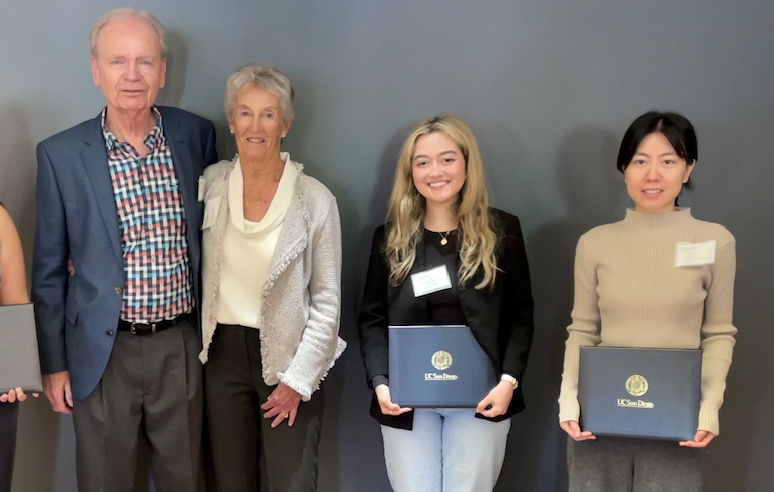
Graduate Student Clarissa Do O Receives Lattimer Award for Graduate Excellence
The Carol and George Lattimer Award for Graduate Excellence is given to an outstanding graduate student who seeks interdisciplinary approaches to problem solving and has a strong commitment to education. Recipients not only demonstrate promise as a stellar scientist or mathematician, but also impact others through mentorship, service, and educational outreach."
Originally from Brazil, Clarissa Do O chose UC San Diego for its burgeoning Astronomy & Astrophysics department. Clarissa's research centers on directly imaging exoplanets & studying their orbits & formation. She feels deeply honored to receive this award, seeing it as motivation to continue striving for excellence. Clarissa is actively involved in astronomy outreach & finds joy in ice skating.
A&A Department Debuts at Triton Day
Congratulations to UC San Diego's Entering Class of 2024! This year marks the debut of the undergraduate program in Astronomy & Astrophysics. Student affairs officer Mikah Al-Arfah and Vice Chair Konopacky enjoyed welcoming a new wave of freshmen and transfer students to learn about the astrophysics program at Triton Day!
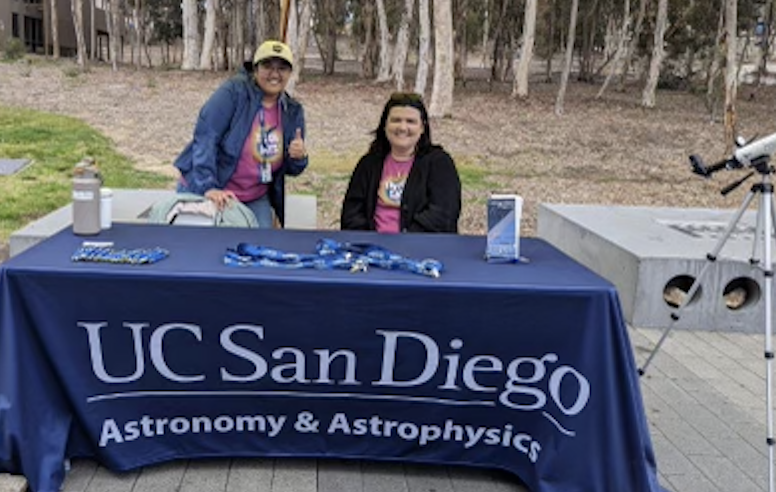
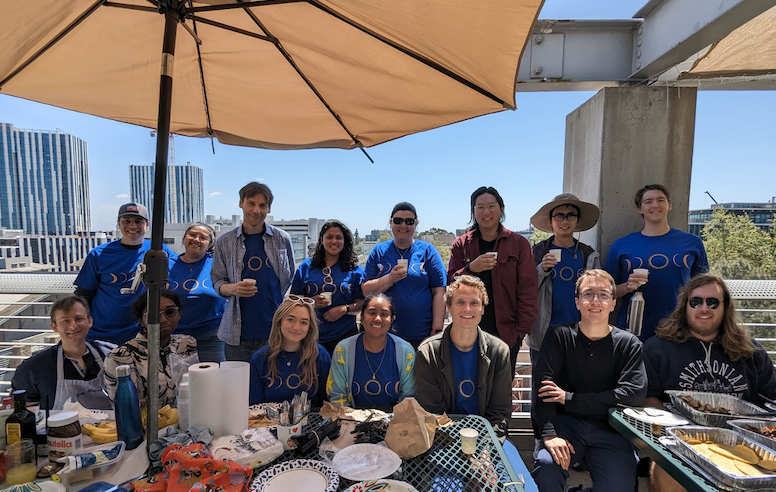
UC San Diego Enjoys Spectacular Partial Solar Eclipse
Over fifteen A&A volunteers deployed all over UC San Diego campus to give out free eclipse glasses and to setup telescopes for viewing the partial eclipse. It was a beautiful San Diego morning with a fanatics turn out from our campus community. After the eclipse, A&A hosted a volunteer event featuring tacos from the Taco Stand!
Professor Burgasser watched the total solar eclipse from a cruise line in Mexico - see news story here. And Watch on local news!
Professor Konopacky explains what is an eclipse and how best to watch it, see here.
Senior Bretton Simpson Reflects on His Academic Path in Astrophysics
School of Physical Science does a spotlight interview with Bretton Simpson a graduating senior in Physics with a specialization in Astrophysics.
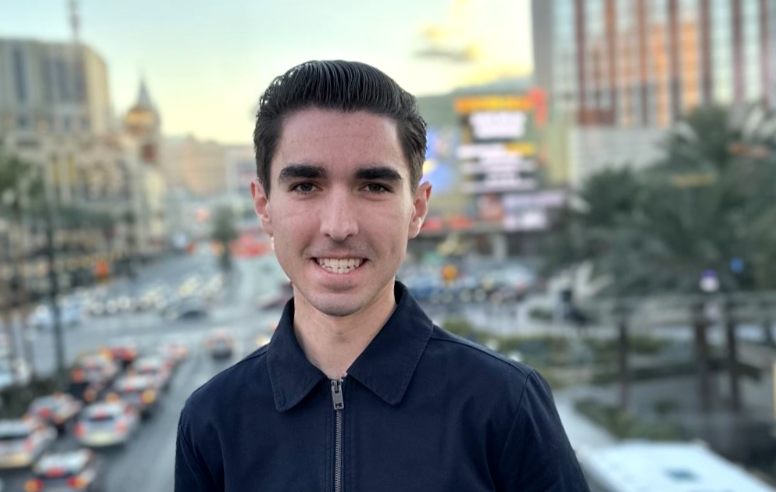
Arthur M. Wolfe Symposium Held at Scripps Institute of Oceanography
The Scripps Institution of Oceanography hosted the Arthur M. Wolfe Symposium on March 28, 2024, a tribute to the renowned UC San Diego astrophysicist. The event, commemorating a decade since Wolfe's passing, united researchers, former students, and colleagues to delve into his groundbreaking work on star formation and the early universe. Attendees participated in an interactive workshop exploring gas dynamics in galaxies, showcasing Wolfe's enduring influence on the field.

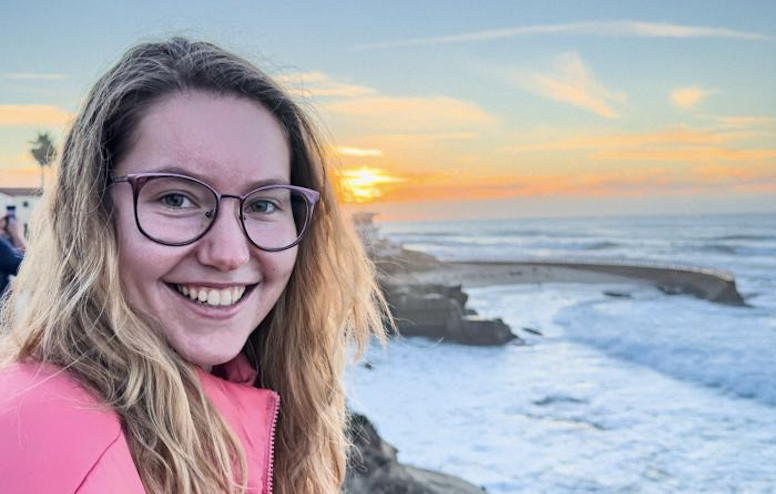
Emma Softich awarded the Sally Ride Graduate Fellowship
Emma Softich has been awarded the Sally Ride Graduate Student Fellowship for the Advancement of Women in Physics. The fellowship is named in honor of former UC San Diego Professor of Physics and the first American female astronaut Dr. Sally Ride, a passionate advocate for women in science who passed away in 2012. Emma, a second-year graduate student in the Astronomy PhD program, was honored for her research achievements in the study of cool stars and brown dwarfs, and her contributions to engaging junior women in science as a mentor and outreach participant. Congratulations Emma!
Undergraduate Tiffany Liou Wins the AAS Chambliss Award
The Department of A&A congratulates undergraduate Tiffany Liou for her award winning poster at the recent 243rd meeting of the American Astronomical Society. Tiffany is a 4th year undergraduate majoring in Physics with a specialization in Astrophysics. Her poster entitled "Rest-UV Properties of MUSE DR2 Galaxies” describes her exciting work as a summer research intern at the Space Telescope Science Institute last summer where she worked with Dr. Nimisha Kumari. The Chambliss Award recognizes exemplary research by undergraduates and graduate students presented at the AAS meeting. Congratulations Tiffany!
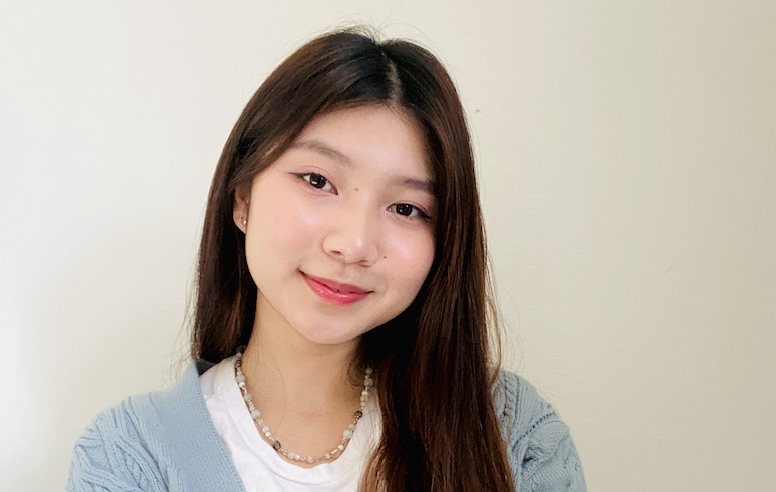
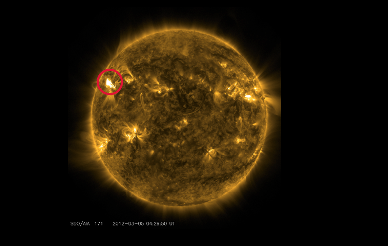
Graduate Student Aravind Valluvan Releases First Catalog of Hot Thermal Solar Flares
UC San Diego graduate student Aravind Valluvan conducted a press conference at the American Astronomical Society 243 Meeting to announce the release of the first catalog of hot thermal solar flares. Valluvan and collaborators observed 2,200 of these hot thermal flares, and their new catalog will be crucial for deriving the formation mechanisms of these flares. Read more about the newly released paper, Valluvan et al. 2023.
Uncovering the Origin of the Universe’s Rare Radio Circles
Prof. Alison Coil and collaborators unravel the origin of rare radio circles as presented in a recent Nature paper. These peculiar radio signals, detected using the latest ASKAP (Australian Square Kilometer Array Pathfinder) telescopes, had puzzled scientists due to their lack of identifiable sources. Coil and researchers, utilizing multi-wavelength observations, identified the origins of several odd radio circles, linking them to distant starburst galaxies and providing crucial insights into their nature and formation. Read more in Nature, Coil et al. 2024.
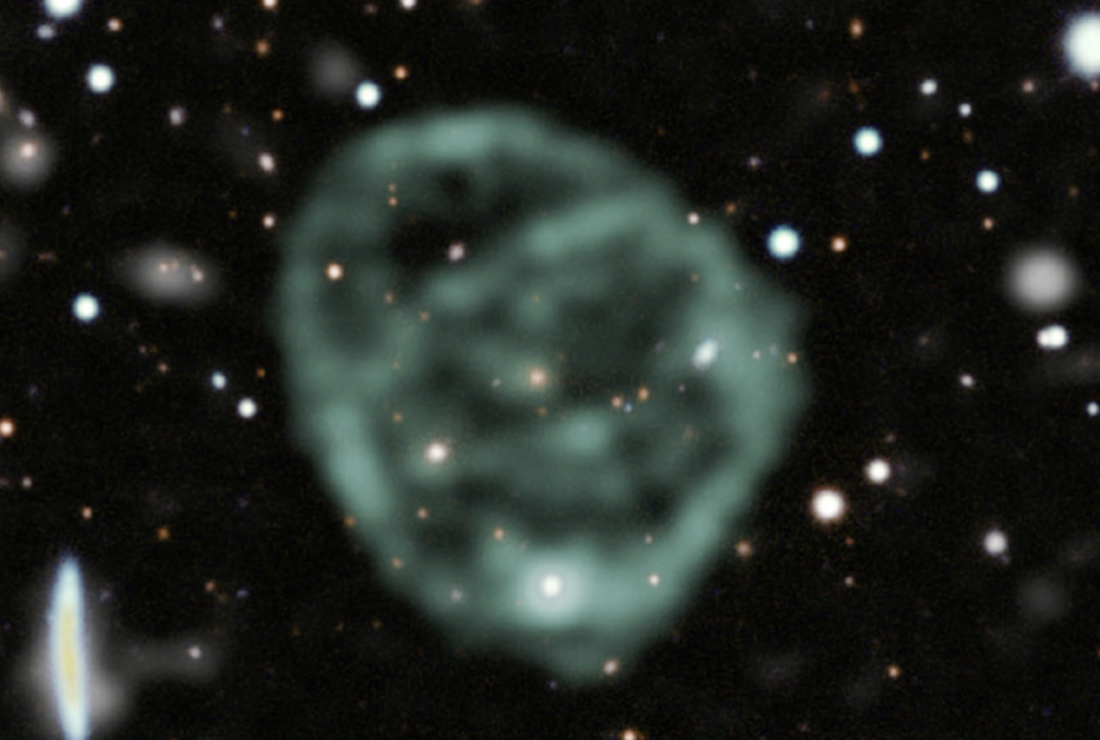
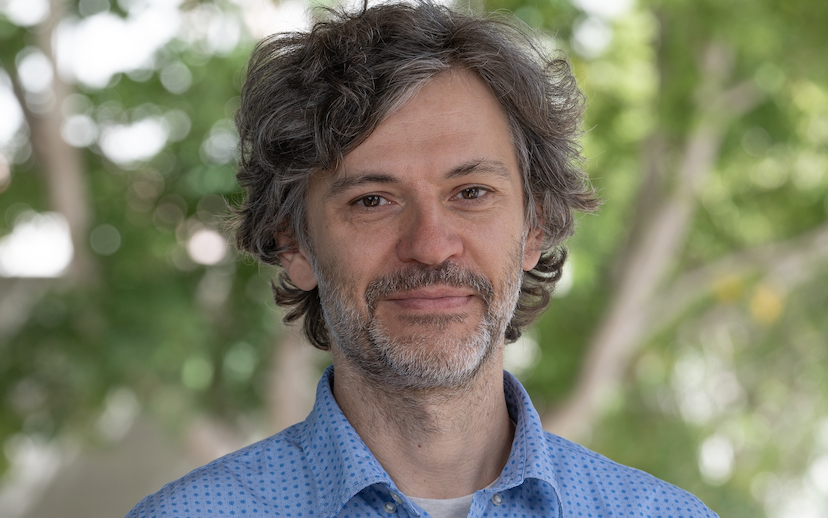
Prof. Keres Recognized as Top Influential Researcher, Elevates UC San Diego to 7th Globally
UC San Diego has the highest number of influential voices in the University of California system and ranks 7th highest among universities worldwide, released by Clarivate’s 2023 Highly Cited Researchers (HCR) list. Professor Dusan Keres is highlighed as one of the 71 UC San Diego researchers included on the list in disciplines ranging from astrophysics to economics.
Prof. Burgasser Inducted in the UC San Diego Athletics Hall of Fame
Prof. Adam Burgasser was one of five UC San Diego Alumni inducted into its Athletics Hall of Fame. Prof. Burgasser was recognized for his superb NCAA Diving performance in 1993 - 1996 as an UC San Diego Undergraduate Student. The group brings the total number of UC San Diego Athletics Hall of Famer members to 42.
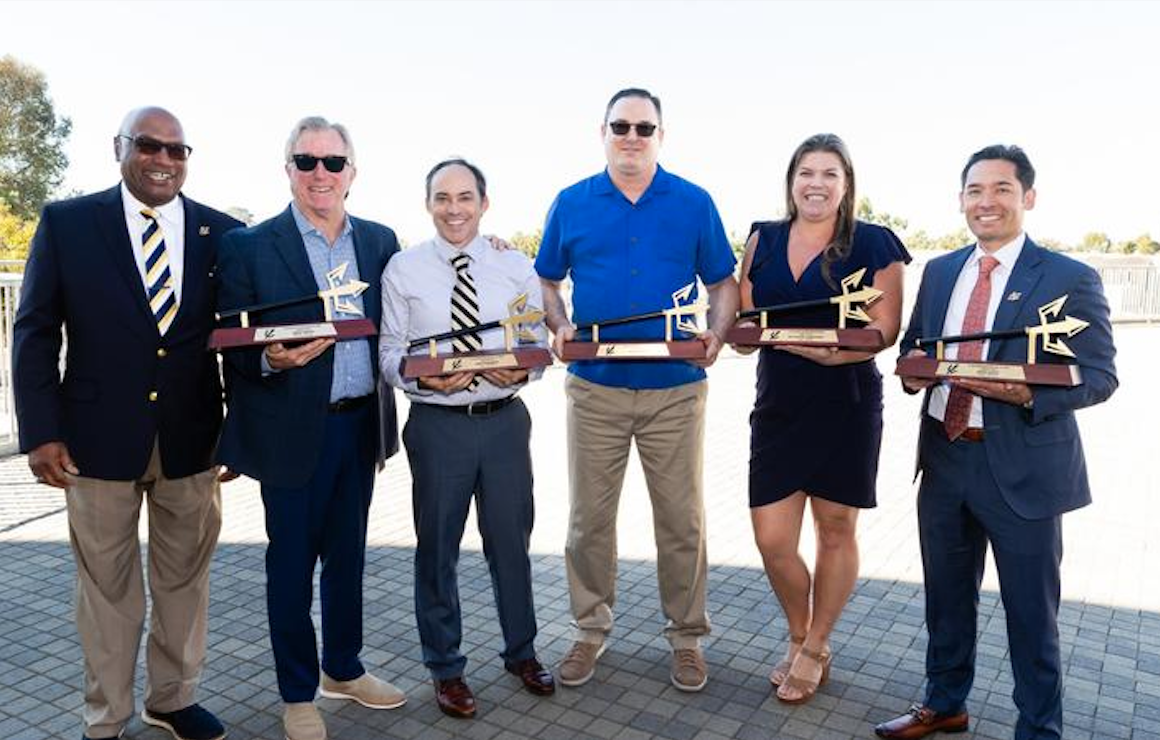
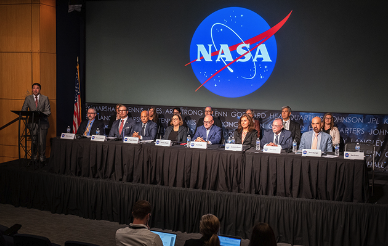
Beyond UFOs: the Future of Unexplained Anomalous Phenomena
UCSD Today features a concise Q&A session with Shelley Wright. Having recently served on NASA's panel on unexplained anomalous phenomena (UAPs), Wright takes a moment to contemplate her career, share insights about the NASA panel, and discuss the continuous pursuit of discovering extraterrestrial life.
A&A involved in eclipse viewing at Fleet Center and UC San Diego campus
A&A personnel teamed up with the San Diego Fleet Center for a thrilling observation of the annular eclipse on October 14th. San Diego experienced a 76% coverage of the moon obscuring the Sun on Saturday morning. Three brand-new A&A outreach telescopes were arranged at the Fleet Center for public viewing. Additionally, the UC San Diego Undergraduate Astronomy Club set up telescopes outside Geisel Library for a fantastic viewing experience. A couple weeks prior to the eclipse, Professor Adam Burgasser, taught San Diego students on how to make a pinhole camera (see CBS 8 story). San Diego we had a successful eclipse viewing!(Images: KUSI news interviewing A&A graduate student Jayke Nguyen and a real-time eclipse photograph taken by UCSD undergraduate Bretton Simpson).
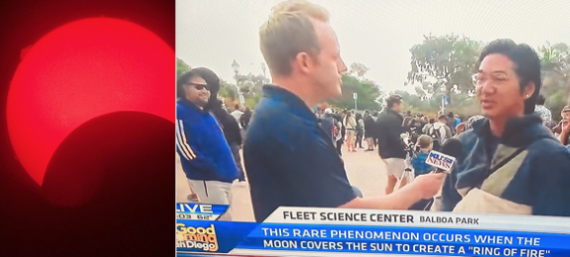
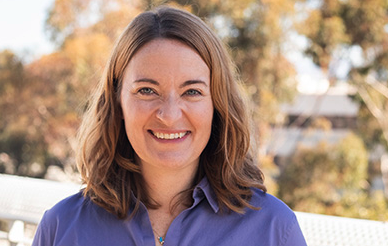
Prof. Alison Coil appointed as inaugural chair of Department of Astronomy & Astrophysics
The A&A Department joins the School of Physical Sciences in congratulating our first department chair, Prof. Alison Coil, on her appointment.
Across the Universe: UC San Diego Announces New Astronomy and Astrophysics Department
The new A&A department was created in March 2023 and is actively being established and rolled out this year. The department has 12 founding faculty. "We have a long history of cutting-edge research in astrophysics, conducted by the top minds of our generation,” stated UC San Diego Chancellor Pradeep K. Khosla. “The formation of a standalone department will usher in a new era of groundbreaking discovery and teaching excellence, and will establish UC San Diego as a preeminent center for astronomy research and education.”
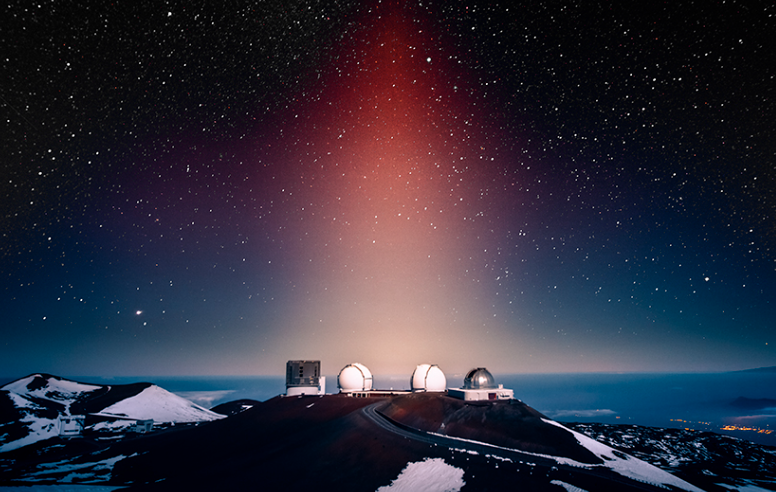
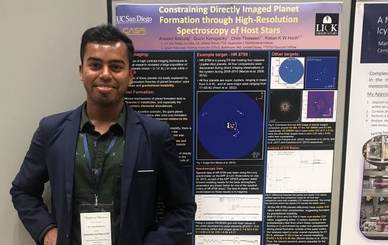
Graduate Student Aneesh Baburaj Selected for a NASA FINESST Award
UC San Diego Astrophysics Graduate Student Aneesh Baburaj has been selected to receive a prestigious FINESST (Future Investigators in NASA Earth and Space Science and Technology) award from NASA. FINESST awards are given to graduate students working on research programs that contribute to the mission of NASA. Aneesh received his award from the NASA Astrophysics Division for his work on measuring the individual abundances in the host stars of directly imaged exoplanets. Aneesh will use these abundance measurements for comparison with the properties of the planets that orbit these stars to offer insight into how massive gas giants form.
Honoring the 40th anniversary of Sally Ride’s Historic Launch Into Space
On June 18, 2023, we commemorate Sally Ride's groundbreaking journey as the first American woman in space aboard the shuttle Challenger. Beyond this historic achievement, Ride's impact at the University of California San Diego (UCSD) is profound. As a professor of physics at UCSD, she inspired countless students, encouraging them to pursue their passions in STEM fields. Her dedication to education and commitment to fostering inclusivity continue to resonate in UCSD's scientific community and worldwide.
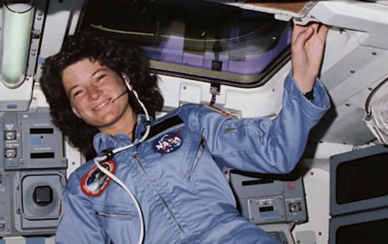
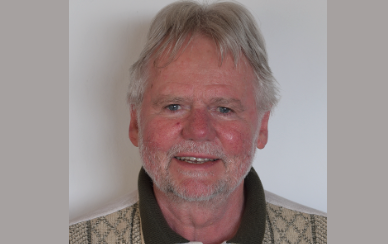
UCSD Alum Dr. Fisher Receives the AAS 2023 Hale and Harvey Prize
Dr. George Fisher receives American Astronomical Society (AAS) Hale and Harvey Prize for his pioneering work in modeling solar flares and revealing the behavior of the Sun’s magnetic field and solar interior. Dr Fisher received his PhD in Physics at UCSD in 1984. Dr. Fisher received the prize at the AAS meeting in June 2023.
Prof. Burgasser Receives SPS 2023 EDI Excellence Award
Professor Adam Burgasser received the UC San Diego School of Physical Sciences (SPS) 2023 Equity, Diversity, and Inclusion (EDI) award for his strong contributions to address EDI issues in the SPS academic curriculum by leading seminars and developing new courses on anti-racism and perceptions of stereotypes in physics.
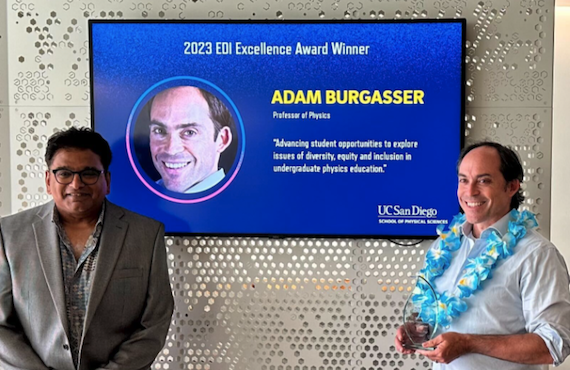
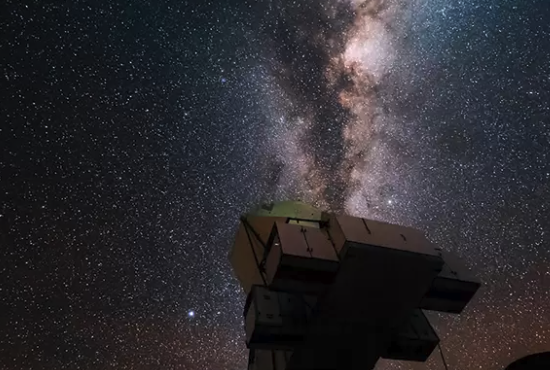
NSF funds $52.7 million to the Advanced Simons Observatory
The National Science Foundation has partnered with the Simons Foundation to generate the Advanced Simons Observatory for Cosmic Microwave Background. The first instruments of the Simons Observatory are deploying this year in Chile (one shipped from UCSD this month) and will achieve first light this year. The NSF funds will enable new detectors that will double the observatory's imaging speed and significantly increase its sensitivity, while accompanying an advanced data processing and storage system.
UC San Diego Launches a Stellar Ph.D. Program in Astronomy
We officially announced our new graduate program in astronomy and welcomed its first full cohort of students this academic year in Fall 2022. Read more about the new program in UC San Diego Today.
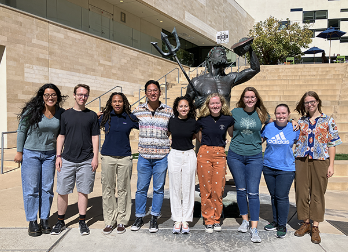
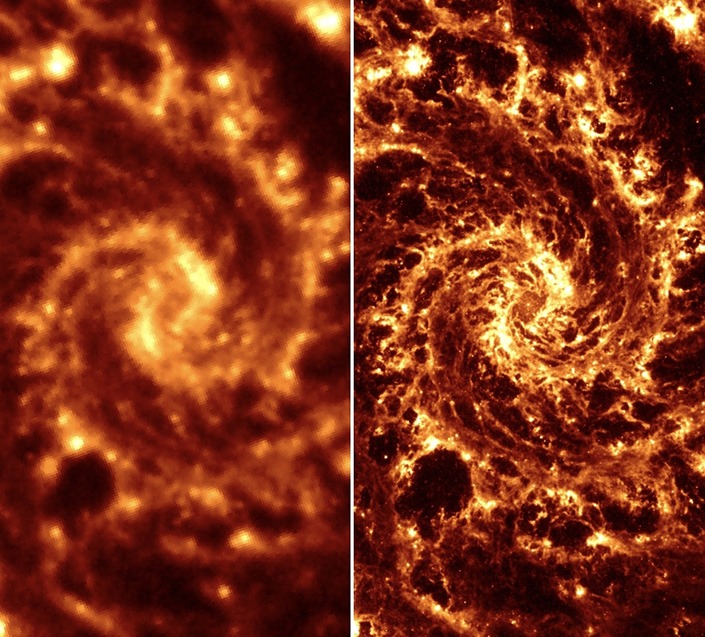
Sandstrom team reveal stunning JWST nearby galaxy images
Prof. Sandstrom, UC San Diego Postdoc Scholar Jessica Sutter, and former UC San Diego Postdocotral Scholar Jeremy Chastenet released their latest James Webb Space Telescope (JWST) findings on dust in the insterstellar medium in nearby galaxies. The latest findings show the critical importance of studying polycyclic aromatic hydrocarbons (PAHs) and inferring the astrophysics of star formation and the ISM. Picture: A side-by-side comparison of NGC 628 (Phantom Galaxy) images taken from the Spitzer Space Telescope (l) and JWST (r) show a remarkable increase in clarity and detail. (SST cr: NASA/JPL-CalTech; JWST cr: NASA, ESA, CSA, STScI)
Arnold part of new partnership with SDSC and Workforce Training
San Diego Supercomputer Center (SDSC) at UC San Diego is part of a new $3.2 million consortium funded by the U.S. Department of Energy (DOE) Office of Science to train the next generation of computational high-energy physicists. Professor Arnold is one of the UC San Diego professors leading these efforts, including Prof. Ni and Prof. Duarte from Physics.
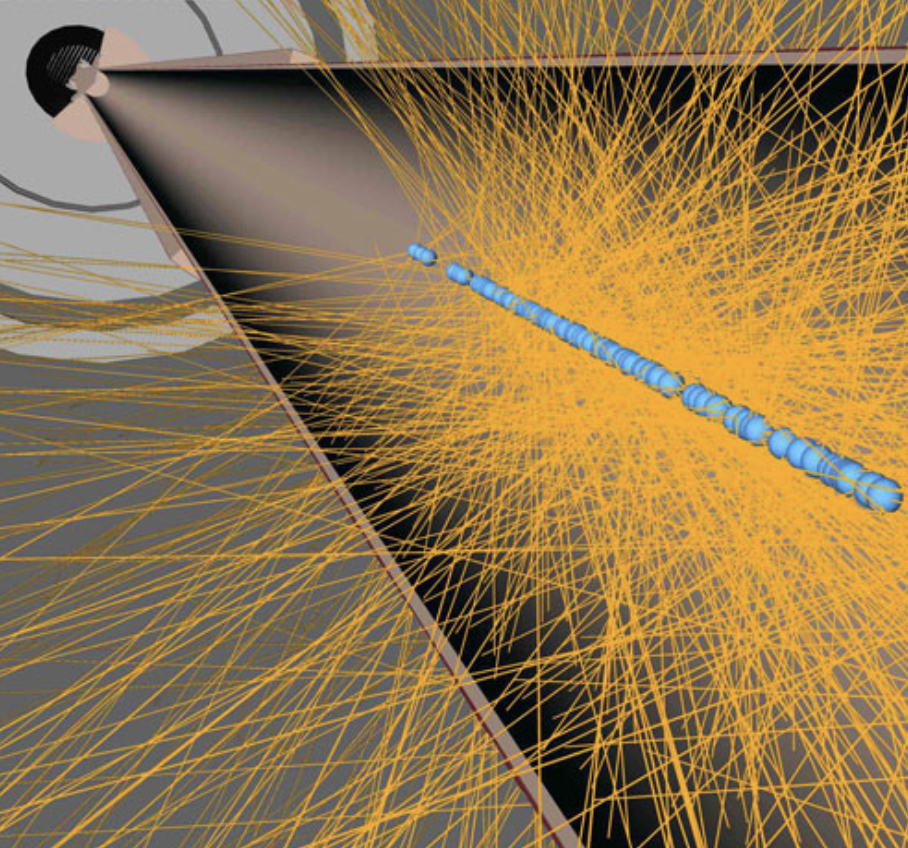
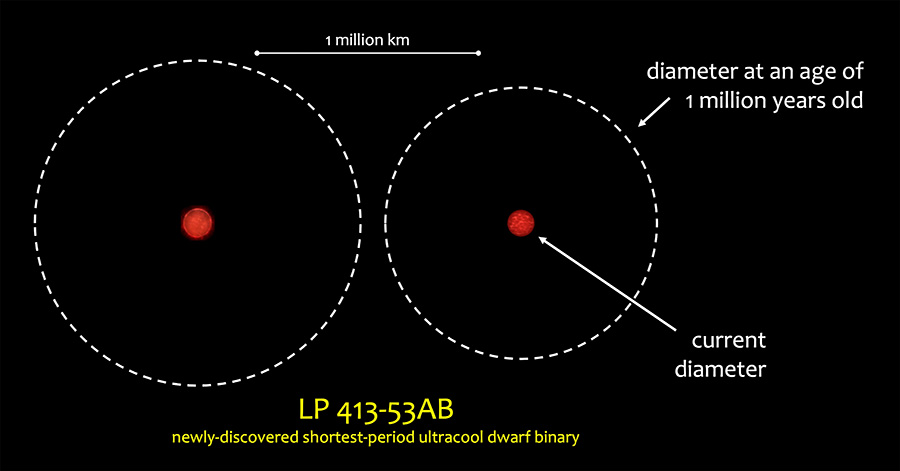
ASTRONOMERS SPOT A TINY BINARY SYSTEM
Prof. Burgasser and UC San Diego Ph.D. alum Chih-Chun “Dino” (now postdoc at Northwestern University) published a stunning paper on one of the most tiniest binary stars. The discovery was announed at the 241stAmerican Astronomical Society Meeting. The binary is a pair of ultracool dwarfs that orbit each other in just 20.5 hours. The star system is the lowest-mass binary ever found, and this discovery launches new questions about how common these tight cool binaries exist.
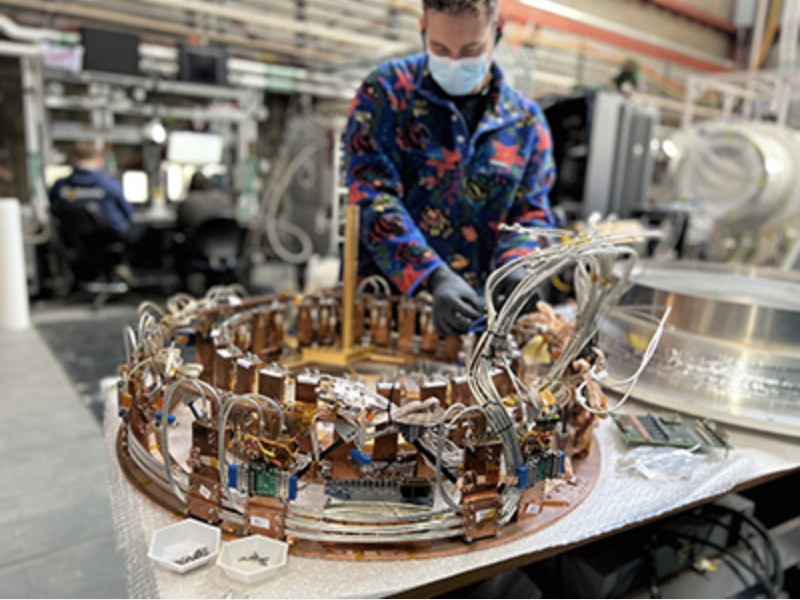
Simons Observatory Nearing Completion
After more than six years of planning, building and testing, the four-telescope array is nearing completion in 2023. Established by Professors Keating and Arnold, along with collaborators, the Simons Observatory project has grown to over 380 scientists, engineers and staff from academic institutions around the world. Read about the latest instrumentation updates and installation of the telescopes in the current highlight. Picture: Graduate student Maximiliano Silva-Feaver assembling the cryogenic focal plane module.
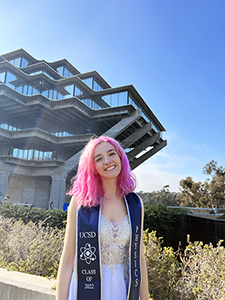
Alumni Spotlight: Mikaela Larkin
Mikaela Larkin graduated last spring with a B.S. in physics with a specialization in astrophysics. During her time at UC San Diego she was the lead author on the paper, “Characterization of Population III Stars with Stellar Atmosphere and Evolutionary Modeling and Predictions of their Observability with the JWST,” recently published in The Astronomical Journal. Read more about the paper and Larkin’s time at UC San Diego in this spotlight Q&A.
Keating named 2022 legend of flight honoree
Prof. Keating was recently honored by the International Air & Space Hall of Fame as a 2022 Legend of Flight honoree for his exemplary research in the cosmic microwave background. Guests from around the world convened at the San Diego Air & Space Museum’s Edwin D. McKellar Pavilion of Flight on November 19 to recognize Keating and the other honorees.
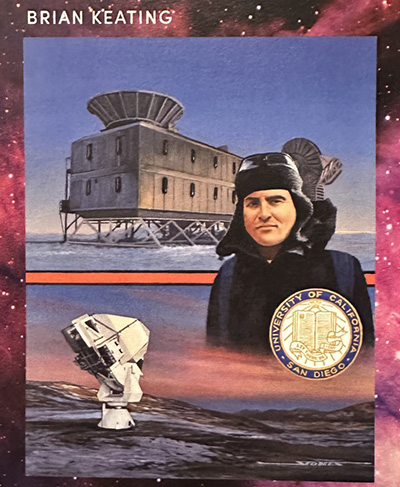
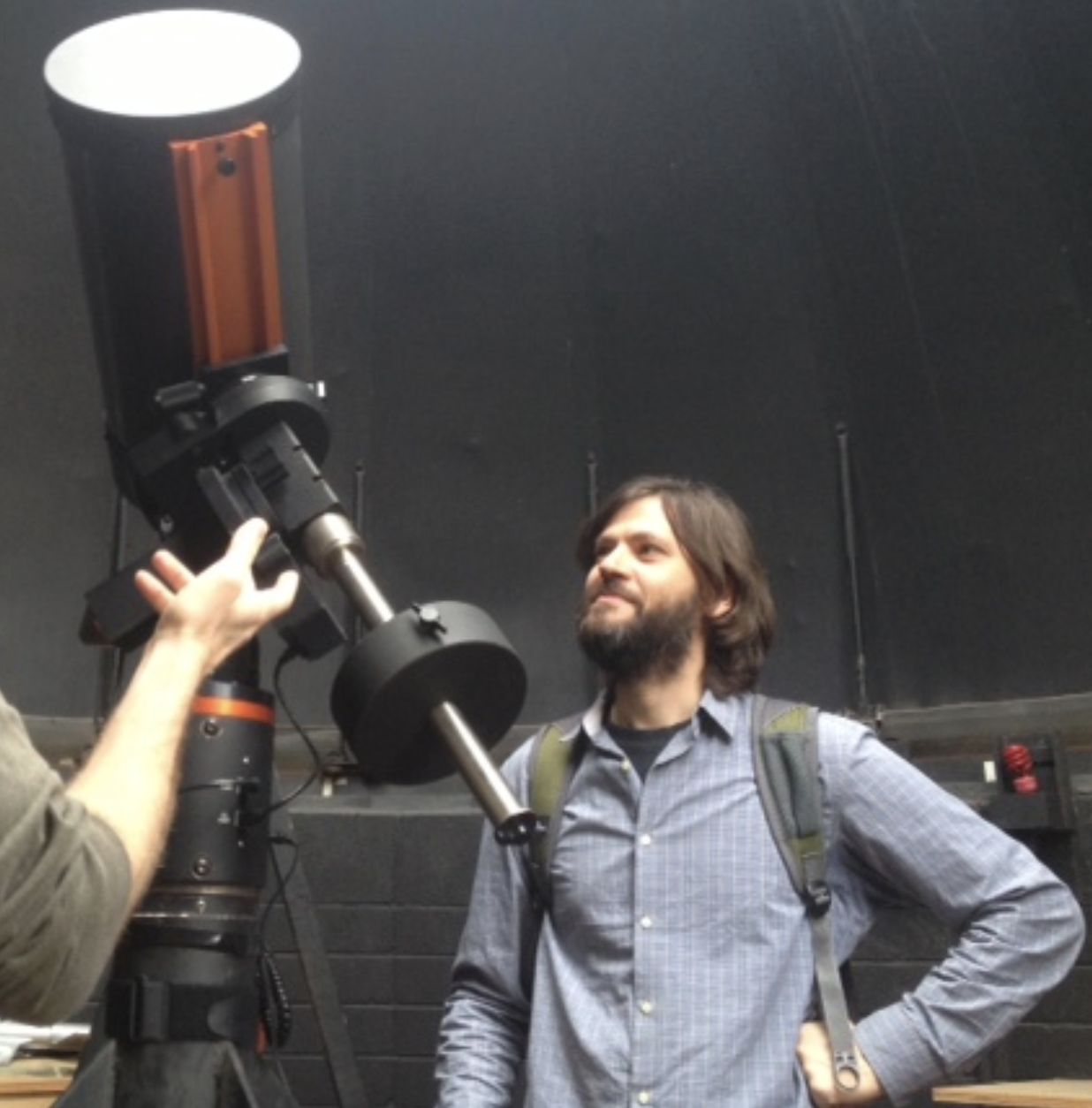
Keres part of UCSD being ranked 8th Globally for Most Influential Research
UC San Diego ranks 8th in the world for 2022 as having the most "Highly Cited Researchers" and is the highest ranked University of California institution on the list. Prof. Keres is listed among the top UC San Diego cited researchers and highlighted in the news release.
The Science of Cool Stars and Super Earths
Prof. Burgasser and graduate student Christan Aganze were part of the research team that discovered two Super Earth type planets orbiting a dim, cool star, named LP 890-9. Read the full interview with Burgasser and Aganze on the importance of this discovery.
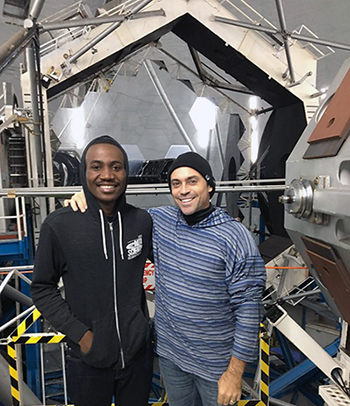

Wright announced as NASA UAP panel member
NASA has commenced an independent study team on unidentified anomalous phenomena (UAP) to examine UAPs from a scientific perspective to improve our understanding and collaboration with other partners on this topic. Prof. Wright was selected as one of 16 members of the NASA independent study team. A public report is expected to be released in 2023.
Simons Observatory Breaks Award Records at UC San Diego
Professor Brian Keating and Professor Kam Arnold received UCSD most highly funded project of the year with $62 million from the Simons Foundation to fund the construction of Simons Observatory in Chile’s Atacama Desert (at 17,200 feet in elevation), which is capable of studying the cosmic microwave background at unprecedented detail and sensitivity.
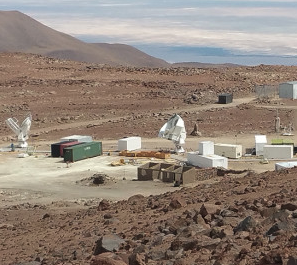
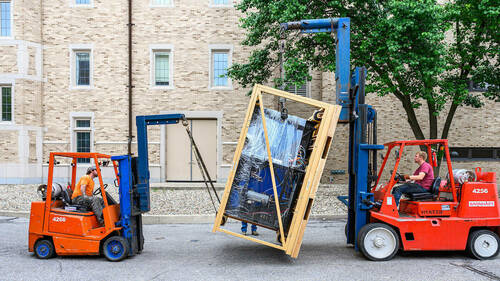
Konopacky and Team Ready to Upgrade GPI
The Gemini Planet Imager (GPI) was shipped from Gemini-South Observatory in Chile to the United States for its major upgrades. Prof. Konopacky and collaborators at Notre Dame will be conducting upgrades to the instrument. Once complete the newly, upgraded GPI will be shipped to Gemini-North Observatory on Maunakea, Hawaii where it will complete a new directly-imaged exoplanet survey.
Shelley Wright Named 2022 Drake Award Recipient
UC San Diego Associate Professor of Physics Shelley Wright received the 2022 Drake Award from the SETI Institute in May 2022. Wright was recognized for her decades-long work in the field of searching for extraterrestrial intelligence (SETI) with innovative optical and infrared instruments.

Graduate Student Kielan Hoch Awarded Giacconi Postdoctoral Fellowship
UC San Diego astrophysics graduate student Kielan Hoch has been awarded the prestigious Giacconi Postdoctoral Fellowship. The award is named in honor of Nobel laureate Riccardo Giacconi, who was the founding director of the Space Telescope Science Institute (STScI) in Baltimore, Maryland. The award supports postdoctoral fellows for three years to conduct independent research at STScI. Kielan’s thesis research at UCSD focuses on understanding the atmospheres of gas giant exoplanets. Her postdoctoral fellowship, which will commence after she receives her Ph.D. this summer, will be focused on analyzing observations of planets from the newly-launched James Webb Space Telescope. Congratulations Kielan!
UCSD Astronomers Help Identify Rare Brown Dwarf Pair
A team including UC San Diego Professor of Physics Adam Burgasser and Physics graduate students Christian Aganze and Dino Hsu have discovered an unusual pair of brown dwarfs. Using the W.M. Keck Telescope, the team discovered the pair orbit each other while being separated by 12 billion miles, or three times the separation of Pluto from the Sun. This makes it the widest pair of brown dwarfs ever discovered. The target was first identified as a target of interest by the citizen science project Backyard Worlds: Planet 9.
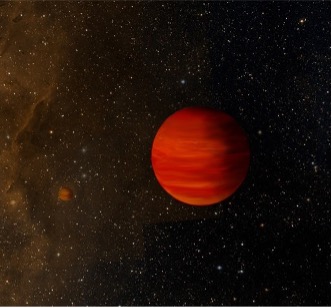
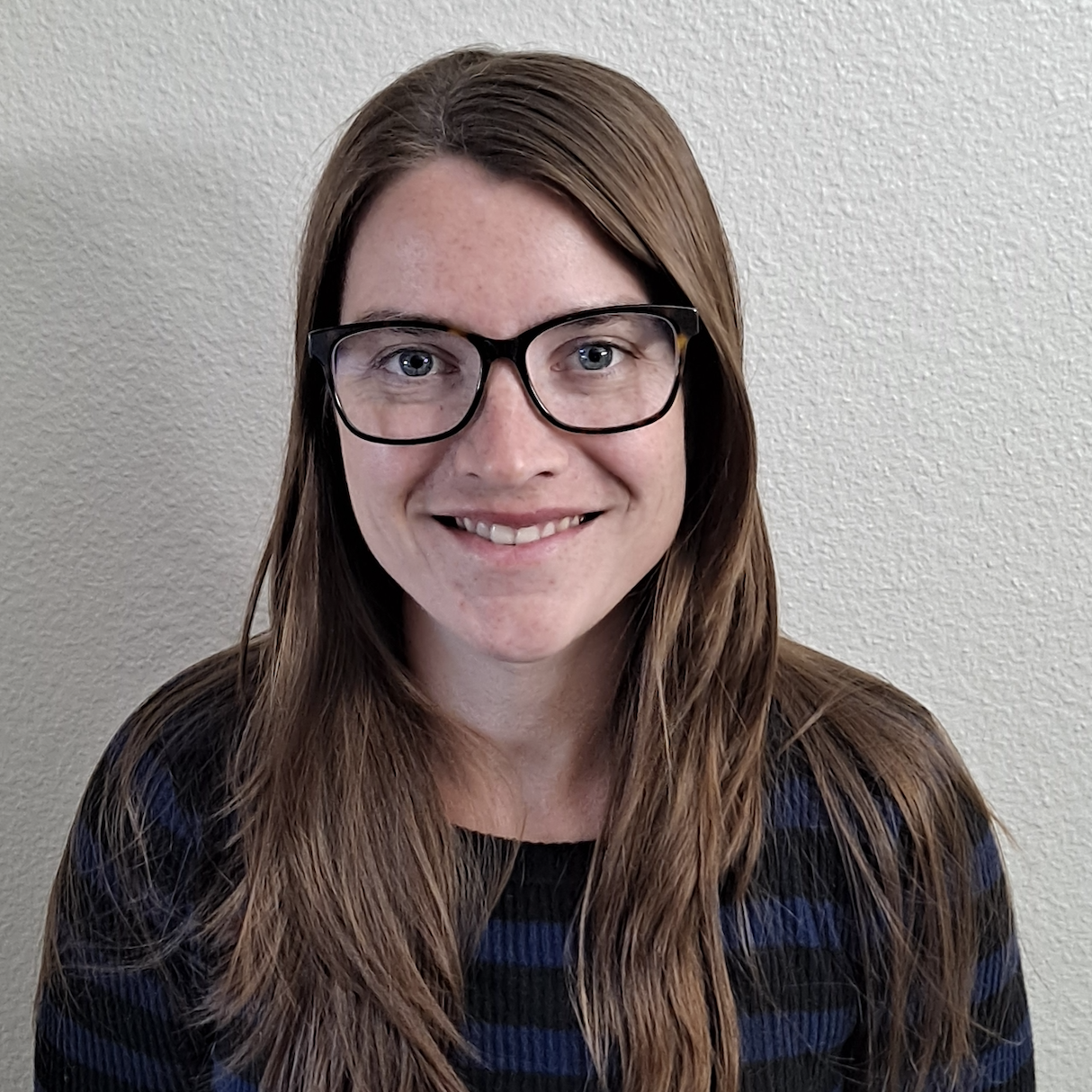
Graduate Student Maren Cosens Awarded Brinson Carnegie Fellowship
UC San Diego astrophysics graduate student Maren Cosens has been awarded the prestigious Brinson Postdoctoral Fellowship. The award is given by the Carnegie Observatories in Pasadena, California. It supports postdoctoral fellows who demonstrate excellence in astronomical instrumentation, providing up to five years of funding for independent research at Carnegie. Maren’s thesis research focuses on development of near-infrared instrumentation and observations of star formation in nearby and distant galaxies. Her postdoctoral fellowship will focus on instrumentation development for Magellan Observatory. Congratulations Maren!
Professor Dusan Keres Recognized as Most Cited World-wide Researcher
Professor Keres is among the world’s most influential researchers in their fields according to the 2021 Clarivate listing of Most Highly Cited Researchers in the World. Clarivate’s 2021 list identifies some 6,600 researchers from across the globe who demonstrated significant influence in their chosen field or fields through the publication of multiple highly cited papers during the last decade.
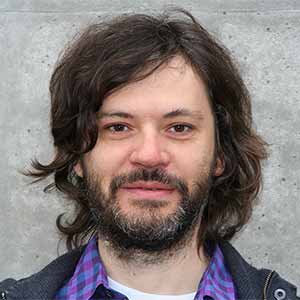
Graduate Student Eltha Teng Awarded Taiwanese Scholarship
|
Graduate student Yu-Hsuan “Eltha” Teng was awarded a prestigious scholarship from the government of Taiwan. Eltha was awarded the "Government Scholarship to Study Abroad" (GSSA) Scholarship, which is honored to only a small number of Taiwanese students pursuing a PhD degree outside of Taiwan. The scholarship comes from the Ministry of Education of Taiwan. |
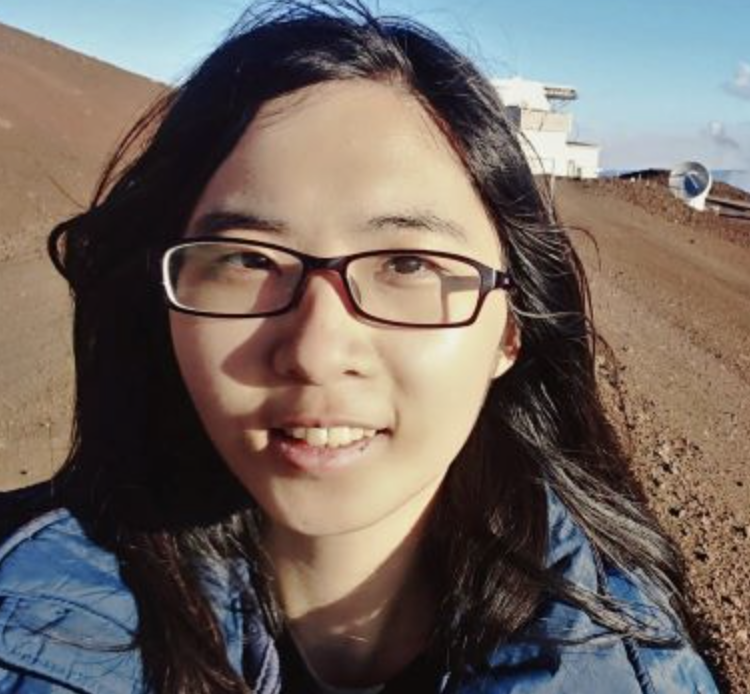
NSF funds AI Data Institute
The NSF has funded $15 Million to advance A3D3 Institute. To take full advantage of fast AI, the A3D3 Institute will target fundamental problems in three fields of science: high energy physics, multi-messenger astrophysics and systems neuroscience. “The ability to identify and further distribute these events as astronomical alerts enables the entire transient astronomy community to cross-correlate observations and understand astrophysical phenomena” said Assistant Physics Professor Javier Duarte....
Graduate Student Jayke Nguyen Awarded the Sloan Fellowship
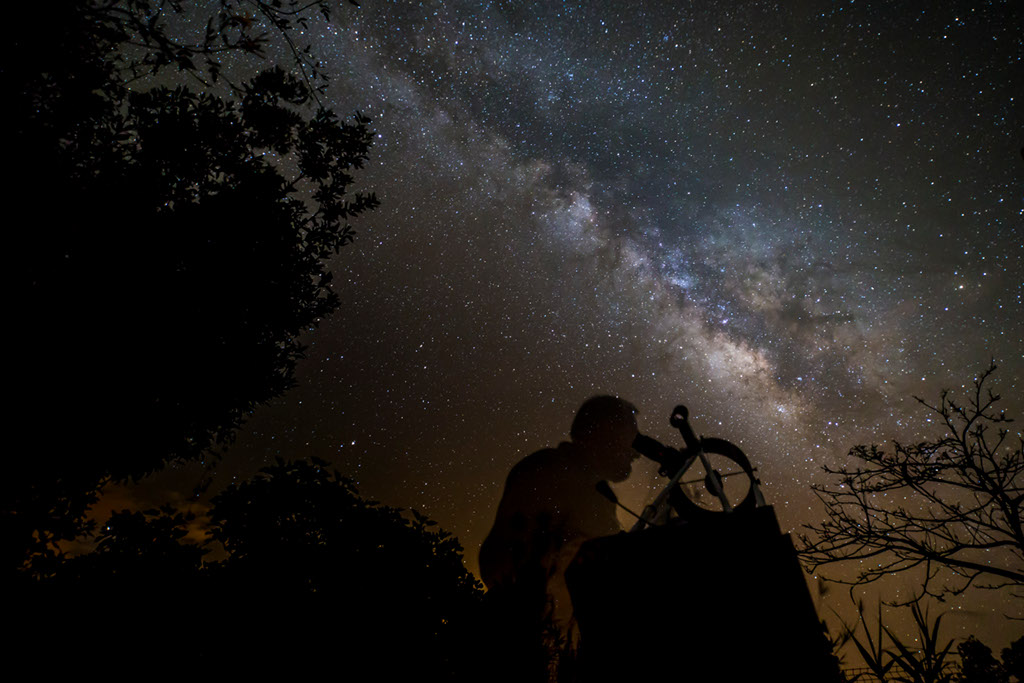
UC San Diego now offers an Astronomy Ph.D. Program
July 1, 2021
The Physics Department now supports a M.S. and Ph.D. program in Astronomy. This new program will provide a competitive and cutting-edge educational and research environment for worldwide graduate students interested in studying astronomy & astrophysics. The new Astronomy Graduate Program is supported by 16 Physics Faculty.